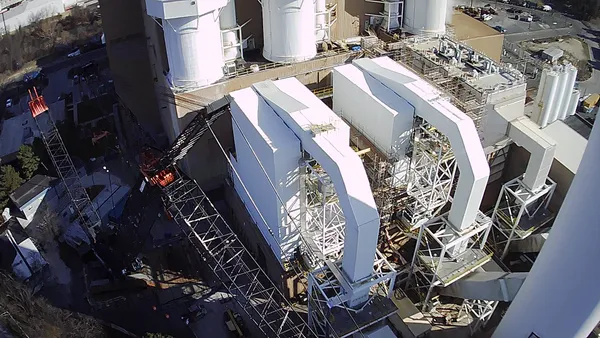Dive Brief:
- Morristown, NJ-based Covanta Energy Corp. is closing two biomass waste-to-energy plants in Maine in March—a decision driven by plummeting energy prices.
- The Jonesboro and West Enfield plants, which burn wood to generate electricity, collectively produce 49 megawatts of power and employ 44 people, as reported in Waste360.
- According to the Professional Logging Contractors (PLC) of Maine, the closings may necessitate cutting 2,500 logging industry jobs in that state. The association asked Maine Gov. Paul LePage to help strengthen the state’s biomass electricity production efforts.
Dive Insight:
As is the case with the commodities industry, renewed energy for utility is an area that has its ups and downs, based on markets and the economy — and the downward spiral is affecting other dependent stakeholders, in this case the logging industry.
"Unfortunately, this happens with some frequency in the biomass industry when energy prices are not sufficient to cover the costs of operation and fuel supply," according to a Covanta statement. "We have experienced similar situations in the past and resumed operations when the economics improved. We will continue to evaluate the future of the facilities."
In the meantime, Covanta appears to be forging ahead with its waste-to-energy focus in other regions; having just extended a contract with a WTE facility in York, PA until 2035, where $30 million is planned in upgrades.
But the closings in Maine will be a major setback for that state’s logging industry, which has made a long-time livelihood of selling woody biomass waste from logging operations to plants.
"This announcement should serve as a wakeup call to both the LePage administration and Maine legislators about the dangers of inaction when it comes to formulating energy policies that will benefit our state’s economy, environment and future," said PLC Executive Director Dana Doran. "This is a perfect example of an area where common sense needs to be applied to policy to consider the true cost of our energy, not just the price per kilowatt hour."














